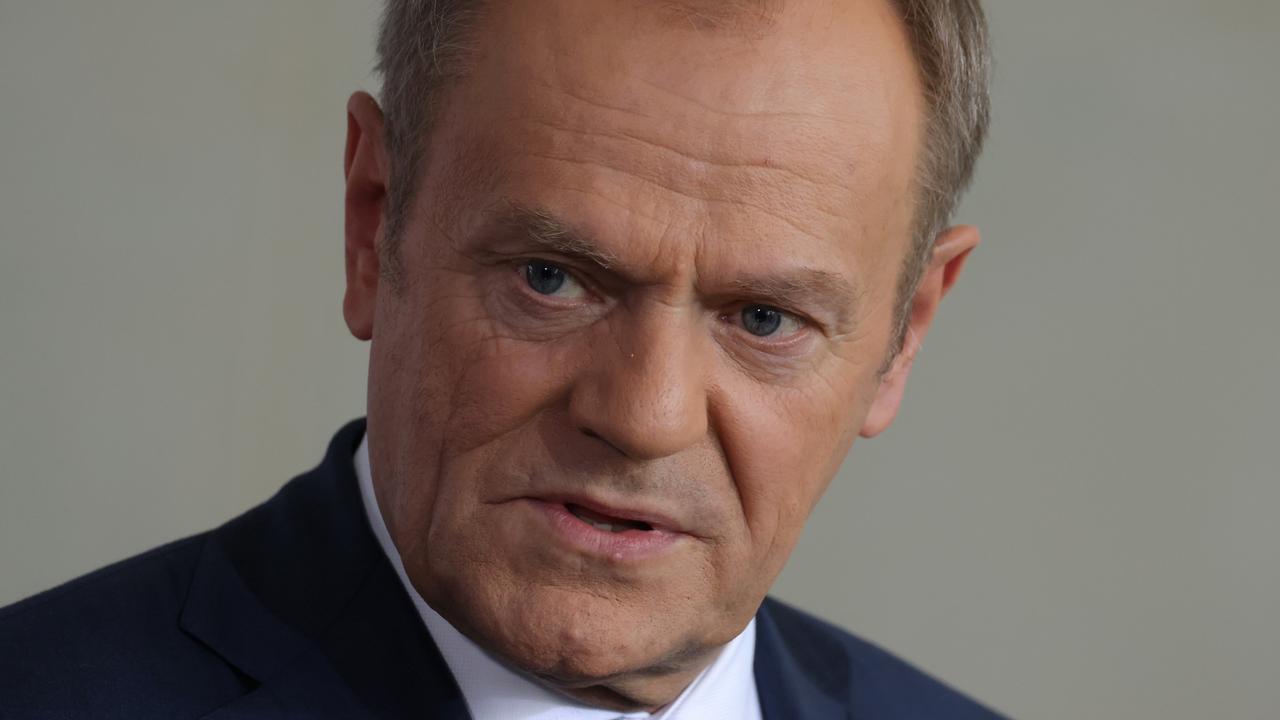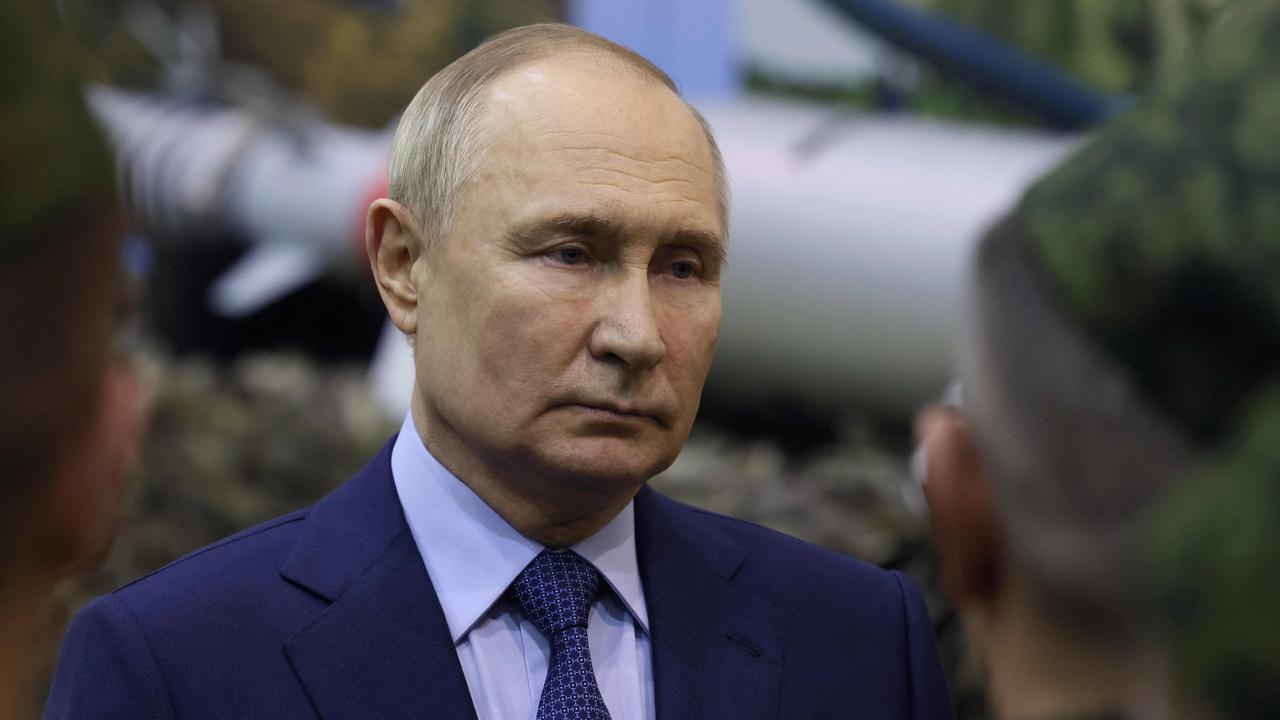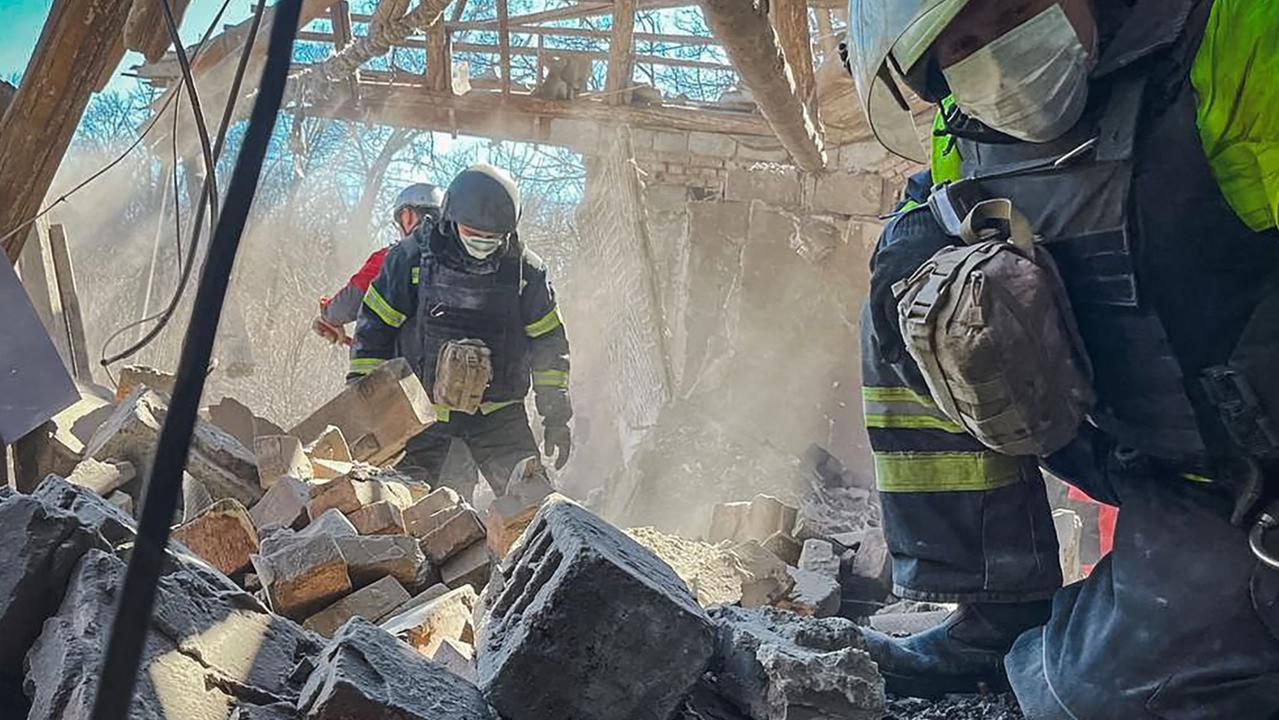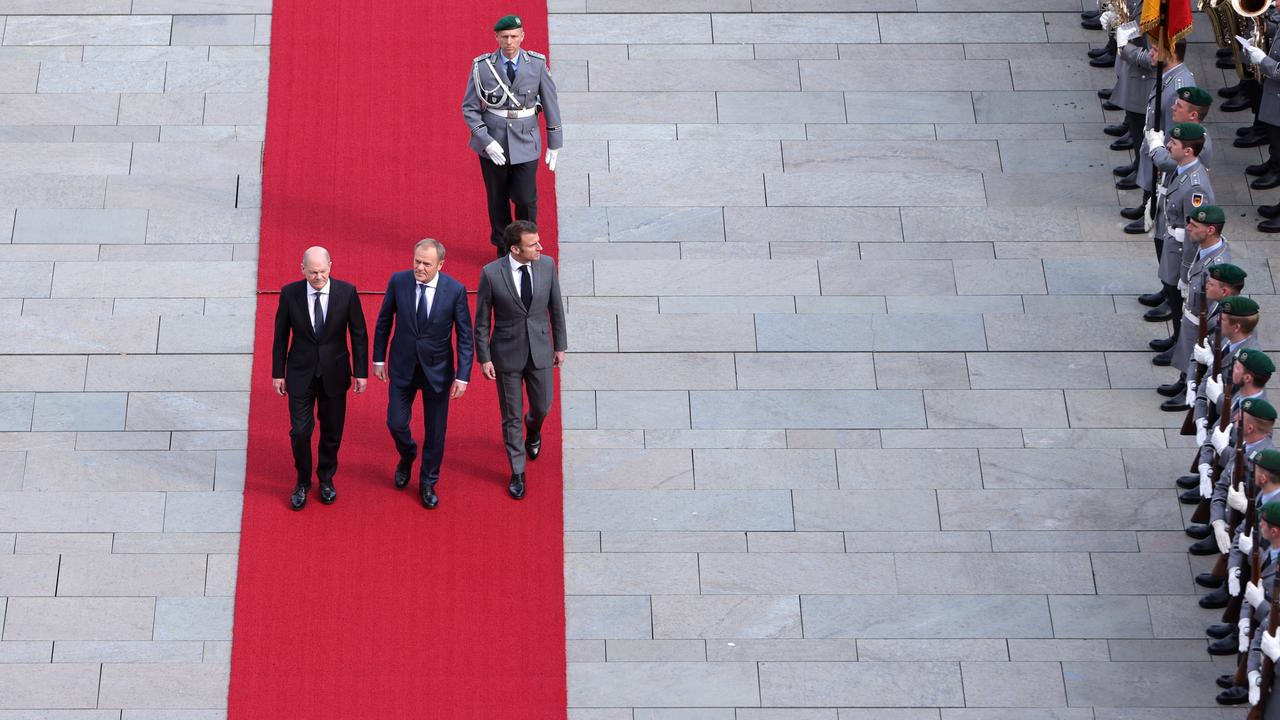
This article is more than
1 year oldThe prime minister of a huge European nation has said while it might be difficult, people have to “mentally get used” to a new reality.
The leader of a major European nation that would be on the frontline of any future conflict with Russia has issued a chilling warning.
Polish Prime Minister Donald Tusk told reporters on Friday that war in Europe was a real threat.
He urged countries to spend more on defence to deter Russian President Vladimir Putin.
“I don’t want to scare anyone, but war is no longer a concept from the past,” said Mr Tusk.
“It’s real and it started over two years ago,” he added referring to Russia’s invasion of Ukraine in 2022.
Putin has denied he has plans to inavde NATO countries.
Poland and Russia have clashed multiple times over centuries. The USSR invaded Poland in 1939 and at the conclusion of World War II, in 1945, Poland was placed in Moscow’s orbit as an eastern bloc nation.
In 1989, Communism fell in Poland and the country is now democratic, part of the European Union and the western NATO defence pact.

‘Devastating’Poland shares a border with the Russian exclave of Kaliningrad and Moscow’s close ally Belarus.
If a Russia-NATO clash were to break out it could happen on or close to Polish territory.
Mr Tusk said that meant it was more of a vivid concern for his country than other nations further from Russia.
“We are living in the most critical moment since the end of the Second World War”.
He added that if Russia defeated Ukraine, nobody in Europe will feel safe, reported the BBC.
“Literally any scenario is possible.
“I know it sounds devastating, especially to people of the younger generation, but we have to mentally get used to the arrival of a new era.
“The pre-war era,” Mr Tusk said.
Warsaw now spends 4 per cent of its GDP on defence, proportionally more than many nations including the US.
He urged European countries to work together to combat the threat from Russia and discourage Moscow from any military action against them.

.
Putin: ‘Idea we will attack Poland … is drivel’
Putin, last week, insisted Russia was not a threat to NATO countries.
Speaking to Russian air force pilots he said: “we have no aggressive intentions towards these states”.
“The idea that we will attack some other country – Poland, the Baltic States, and the Czechs – is complete nonsense. It’s just drivel.”
Putin added that if western nations sent F-16 fighter jets for Ukraine to use they would be shot down.

Moscow has stepped up its aerial bombardment of Ukraine in recent weeks, targeting energy infrastructure in response to deadly Ukrainian assaults on Russia’s border regions.
Overnight on Friday, Kyiv said it shot down 58 Russian drones and 26 missiles.
Ukraine warned on Friday that Russian air attacks were putting its electricity supply under “increasing threat”, hours after strikes damaged power stations and killed at least one person.
Prime Minister Denys Shmygal said the strikes showed Ukraine urgently needed more air defence systems, a demand Kyiv has repeatedly made to its Western allies as its energy sector buckles under pressure.

Russia conscription drive
Russia will begin calling up tens of thousands of soldiers next week in a conscription drive to replenish its armed forces and build up its military reserves.
Moscow says conscripts are not sent to fight in Ukraine but the draft – which happens twice a year – comes amid persistent rumours of a new wave of mobilisation for Ukraine offensive.
“The spring draft will be held from April 1,” deputy head of the defence ministry’s mobilisation department, Rear Admiral Vladimir Tsimlyansky, said in a briefing on Friday.
Some 147,000 conscripts were drafted during last year’s spring call-ups. The army did not say how many it was targeting this year.
Russian men aged between 18 and 30 are eligible to be called up after politicians increased the upper age limit from 27 last year.
Military service lasts 12 months.
Conscripts face intense pressure once in the armed forces to sign voluntary military contracts which allow them to be sent to fight in Ukraine.
Fresh concerns
Russia says it recruited more than 400,000 for its campaign last year, with the defence ministry offering high salaries for fighters.
It has been accused of focusing recruitment on Russia’s poorest regions and ethnic republics.
Once conscripts have completed military service, they form part of Russia’s military reserves and are liable to be sent to the front lines if mobilised in the future.
Mobilisation rumours have persisted since The Kremlin forcibly drafted more than 300,000 in autumn 2022.
Putin said in December there was “no need” for another wave, pointing to successful recruitment efforts.
But his re-election victory earlier this month — combined with the defence ministry saying it would create two new armies by the end of the year and the Kremlin pointing at Ukraine for last week’s deadly attack on a Moscow concert hall — have all triggered fresh concerns.
– with AFP.